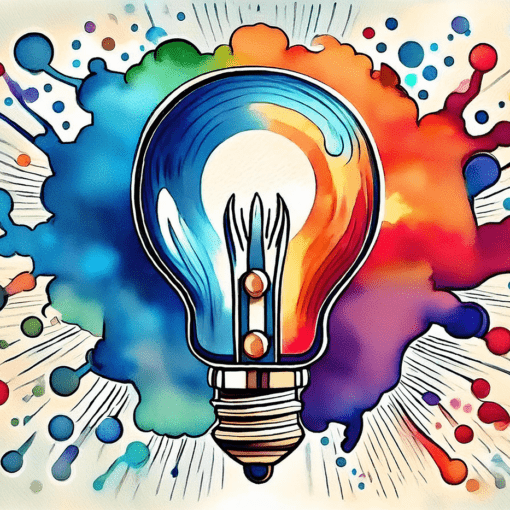
"Here’s to a bright New Year and a fond farewell to the old;
Here’s to the things that are yet to come, and to the memories that we hold."
I imagine some of you going: “FOND memories?! Are you kidding me?!!!!”
No, in fact, I am not: if you think back on this past year, I bet that you can find many moments to be grateful for and to remember fondly. There ALWAYS is. Sometimes, we just have to look a little bit harder. And if you haven’t done this yet (looking back on the past year and noticing good things that have happened), now would be as good a moment as any: pause, sit back, and play back your year in your mind’s eye. What went well? What moments of happiness and of joy did you have? How did you contribute and make a difference? What challenges or obstacles did you successfully overcome? What made your life better? What are you grateful for? – and then, find a piece of paper or open a note on your computer, and write it all down! Committing the good to paper solidifies and anchors it. And that makes it deeper and richer.
Now - about the “things that are yet to come”.
The new year, like every anniversary, is an occasion to take stock and make plans. Like so many, you might be making “new year’s resolutions” around January 1st, and creating new goals for a better you and a better year ahead.
I hate to break it to you … but current best science shows that 92% of us do not keep our resolutions!! (This statistic comes from James Garrett's research; he is a psychologist from Columbia University and founder of Brains By Design.)
This means that collectively, only 8% of the population is actually successful at creating change and sticking to goals in the new year. Moreover, it's being said that the average person makes the same life resolution 10 times over without success (it's certainly been true for me!). Isn’t that seriously depressing?

Let’s look at WHY that is, shall we?
For one thing, the word “resolution” actually means “the act or process of resolving”, i.e. of “solving again”, which suggests that something is wrong that needs to be solved. Indeed, most resolutions we make are about fixing ourselves.
But we are not a problem!
We are not broken, and we don’t need to be fixed!! We might have problems, but that’s very different from being a problem.
Resolutions are often guided by our egos telling us that we don’t measure up to expectations – be it our own self-expectations or those of the world:

Resolutions are generally coming from self-criticism, not so much from self-love (and if you remember, we discussed loving kindness as one of the forms of self-love in last February’s newsletter and established that self-love is quintessential!). They are therefore based in negative language, instead of being framed positively. The brain has a hard time with negative language and follows positively-phrased requests much more readily.
Beyond the problem that’s built into the word itself, here are the other reasons why resolutions do not stick:
1. Einstein said: “We can’t solve a problem from the level of consciousness that created it”. How do we expect the same “us” that is NOT working out or NOT getting off TikTok today, to actually start working out or putting the phone down tomorrow? If we don’t know who our saboteurs (internal negative/critical voices) are, we can’t really fight them. It’s a good idea to delve deep and understand the WHY behind our less desirable behaviors before we set out to try to change them.
2. Resolutions are often not about your deep desires but more about conforming to the dictate of others or of society: how about tying goals and intentions in the new year to your deep values instead? To what makes you deeply alive and fulfilled? Finding your own flow is clearly the path of least resistance.
3. They are often WAAAAAAAAY too lofty – in other words unattainable, at least in the way they are worded. For successful behavior change, it’s important to start small! Check out the concept of "tiny habits": it's life changing!
4. Resolutions are usually not specific enough: “I need to work on my health in 2022” or “I need to lose 20 lbs.” doesn’t give us any useful information about HOW this is supposed to occur. There's no plan built into such a generic statement!
5. Most of us are embarrassed to not yet be the version of ourselves we aspire to be – so we go it alone with resolutions, when the key success factor for sticking with a behavior change is to have an accountability structure. As Stephen Covey, author of the 7 Habits of Highly Effective People, once said, “Accountability breeds response-ability.” The American Society of Training and Development (ASTD) did a study on accountability and found that you have a 65% higher chance of completing a goal if you commit to someone. And if you have a specific accountability appointment with a person you’ve committed to, you will increase your chance of success even more by up to 95%.
So … is it hopeless to wish for change? For a better self? Is it useless to set goals??
ABSOLUTELY NOT!!!
The devil is in the details. Start by switching words:
- From resolutions to INTENTIONS, because intentions come from deep desires of our heart and are rooted in our values. They are powerful because they are in alignment with our higher self. If 2022 were to be a really good year for you – what would it look like? What would you keep? What would you let go of? What would you create that’s new?
- From resolutions to GOALS: what are your top priorities this coming year? Write down 2 to 4 achievable goals in specific detail following the SMART model (Specific, Measurable, Achievable/Attainable, Realistic/Relevant, Time-bound). And remember to build your accountability structure as you create your goals.
- From resolutions to PRACTICES, so if some days you fail, it doesn't matter because that's what happens when you practice! Slowly and gently, you have the whole year to work on becoming who you want to be! Practice doesn't make perfect but it certainly makes progress!
Therefore, by setting value-based intentions for the new year, then creating two to four SMART goals, and starting to implement those goals with small daily practices supported by an accountability partner, you have a much greater chance of being a part of the 8% group of people who actually succeed at changing and becoming the version of themselves they want to be. How cool is that??
“And now we welcome the new year, full of things that have never been”
~ Rainer Maria Rilke
Does this all make sense to you, but you feel you need help setting your intentions, goals and practices?
THAT'S WHAT I'M HERE FOR!
I would love for us to work together in 2022 to make this your best year yet! Join my FREE one-off '2022: New Year, New You' virtual workshop below!
2022: New Year, New You!
FREE Virtual Workshop
Join me on Wednesday January 26, 2022 at 12pm EST on Zoom for a one-hour free workshop on establishing your intentions for the new year, setting SMART goals, and putting a practical plan in place to actually make them happen.
You will leave the webinar energized, hopeful and optimistic, with a clear idea of what’s important to you right now, what you therefore want to accomplish in 2022, and how to get there.
This very interactive and super practical workshop will be a great way to kick off the new year with a clear plan toward achieving some meaningful goals.
We will also have a great time, because who wants another boring zoom webinar?? Our workshops are not only productive, they are also unusually lively and fun. Yes, you come and do some meaningful and productive work, but you also have a great time.
Sign up here - and make sure to bring a few friends!!





